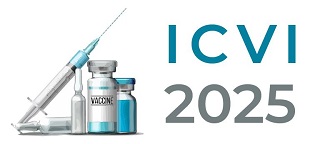Vaccines in Pregnancy and Early Childhood: Safety, Benefits, and Challenges
Vaccination during pregnancy and early childhood plays a pivotal role in safeguarding both maternal and infant health. This session delves into the science, safety, benefits, and ongoing challenges related to immunization strategies tailored for these vulnerable populations.
Importance of Maternal ImmunizationVaccinating pregnant women provides dual protection: it shields the mother from potentially severe infectious diseases and enables passive immunity to be passed on to the fetus. Maternal antibodies, transferred through the placenta and breast milk, offer critical early-life protection against infections such as influenza, pertussis (whooping cough), and tetanus—conditions that can have severe consequences in neonates.
Vaccination in Early ChildhoodImmunization in the first months and years of life is essential to build active immunity against a range of life-threatening illnesses. Vaccines such as BCG, DTP, Hepatitis B, Hib, polio, rotavirus, and MMR form the foundation of childhood immunization schedules globally. Recent innovations, such as combination vaccines and needle-free delivery systems, aim to improve compliance and reduce distress in infants.
Safety and Efficacy
A significant focus is placed on safety data gathered through rigorous clinical trials, pharmacovigilance systems, and real-world studies. Evidence shows that vaccines administered during pregnancy, such as Tdap and influenza vaccines, are both safe and effective. Continued post-marketing surveillance ensures adverse events are rare and well-monitored.
Related Sessions
Tags
- MaternalAndChildHealth2025
- VaccinePolicy2025
- ImmunizationStrategies2025
- PublicHealthImmunization2025
- VulnerablePopulationCare2025
- MaternalImmunization2025
- PassiveImmunity2025
- PregnancyVaccines2025
- InfluenzaPrevention2025
- NeonatalProtection2025
- ChildhoodVaccination2025
- PediatricImmunization2025
- ComboVaccines2025
- InfantHealth2025
- NeedleFreeVaccines2025
